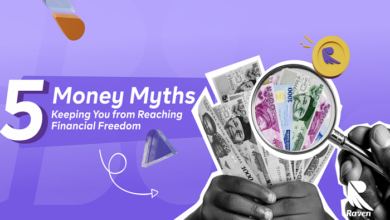From Trading Apps to Demat Accounts: A Beginner’s Guide to Seamless Stock Investing

The entry barrier for investing in Indian markets has fallen dramatically, you no longer require a floor trader or a phone broker to buy shares. Today, a trading app on your phone plus a demat account are all that you need to get started with investing in stocks.
Trading apps give you real-time quotes, order execution, and simple interfaces; a demat account holds the shares you buy in electronic form, just like a bank account holds cash. With this guide, beginners will understand the steps and practical tips on how to move from downloading an application to owning shares, covering costs, rules, security, and common pitfalls, so your first trades are confident and seamless.
What you need: Trading App vs Demat Account
- A Trading App: This is the app you will use to place buy/sell orders on exchanges such as the NSE or BSE. Some of the common ones in India are Zerodha Kite, Groww, and Upstox-all three provide ordering, charting, and portfolio views.
- Demat Account: A demat account is held with a Depository Participant and keeps your shares in an electronic form through the national depositories NSDL or CDSL. Once a trade gets executed, the shares you bought come into your demat account, and when you sell, they get debited from the same demat account. Think of it in these terms: trading app = market door; demat account = digital safe.
Step-by-step: How to open and start trading
- Choose a broker/DP with a good app; compare features, charges, and customer service. Big, trusted names usually mean better uptimes and support.
- Complete your e-KYC and e-sign: Most brokers will let you onboard completely online through Aadhaar OTP or video KYC; you’ll link your bank for settlements. This may take a few minutes to up to a couple of days.
- Open your Trading Account+ Demat Account, which usually comes together from a broker for trading orders and holding securities. You will be given login credentials for the mobile application and a demat client ID for records.
- Fund the trading account and place a small test order to see the flow from order placement to demat credit.
- Monitor confirmations: Trade confirmations and demat statements will reflect transactions.
Keep these for tax purposes and records of your transactions.
Expenses You Can Expect
- Brokerage/commission per trade — depends on broker and plan — flat fee or percentage.
- The AMC for a demat account is normally small: ₹ 300/yr with some brokers; regulations also provide low-cost BSDA options for small investors.
- Transaction taxes and exchange charges: STT, GST, and exchange/SEBI fees are charged, which, though small, do add up if you are trading frequently.
Safety, rules and best practices
- Secure your app with a strong password, enable 2FA, and do not share OTPs. SEBI has approved some technology safeguards against fraud: SIM binding, biometric options, and temporary lock features.
- Distinguish between goals and speculation: trade for short-term opportunities and use investing for wealth creation over the long run. The more frequent the trading, the greater the costs and tax liabilities.
- Check NAV and demat holdings: Periodically review the demat statement to confirm your holdings. It is always much easier to handle disputes with good records.
Practical tips for beginners
- Start with a low-cost broker and a small amount. Test the trade → demat flow before moving larger sums.
- Use limit orders, not market orders, when starting, they control the price you pay.
- Prefer larger, more liquid stocks or ETFs for your initial trades; they will have tighter spreads and a lower impact cost.
- Keep an eye on AMCs and brokerage plans, as small differences make a big difference over time.
Final word
A good Trading App, coupled with the right Demat Account, makes investing in the stock market accessible, transparent, and inexpensive, but only if one truly understands the pieces and guards against basic operational and security mistakes. Start small, learn the mechanics, and scale up your exposure as comfort and knowledge grow.
FAQs
Q1: Do I need both a trading app and a demat account to buy shares?
Yes, the trading application places orders, and the demat account holds the shares post-purchase. Usually, brokers provide both together.
Q2: How many demat accounts can I open?
Yes, you may have demat accounts with different DPs, but only one BSDA per PAN. Keep them straight to avoid confusion and duplicate charges.
Q3: How long does online demat account opening take?
Indeed, with e-KYC and e-sign, onboarding by many brokers gets completed within hours or a couple of days, depending on document verification and video KYC requirements.




